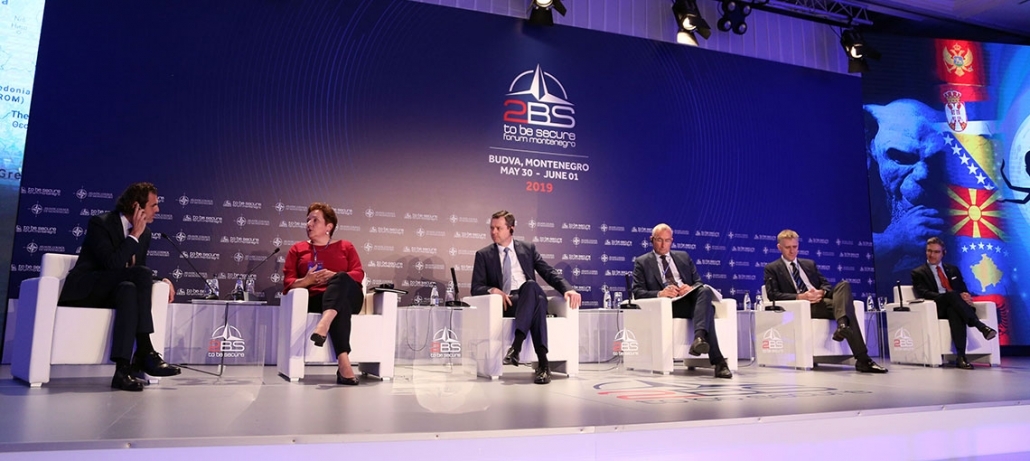The Western Balkans will have strong support from Germany and countries aspiring to become the EU members should do their homework, is one of the messages conveyed during the “Western Balkans – gremlins of the past and fairy tales of the future” panel discussion conducted within the scope of To Be Secure (2BS) Forum, which is held in Budva.
While the State Secretary of German Ministry of Defence, Thomas Silberhorn, promises strong support from the German government to the countries of the Western Balkans, the State Secretary for Security Policy of the Hungarian Ministry of Foreign Affairs and Trade, Péter Sztáray, believes that Balkan countries need a concrete reward for the results they achieved.
“Balkan countries need to receive concrete rewards for the results they achieved, as there have been good results in the past. I hope that some tangible steps will be taken in June. Each country made progress in certain areas”, Sztáray stated during the panel discussion “Western Balkans – gremlins of the past and fairytales of the future ” which took place within the framework of To Be Secure (2BS) Forum held in Budva.
Sztáray said he is very pleased that Montenegro is a member of NATO, and expressed hope that the last chapter in the negotiations with the EU would soon be opened.
“I encourage all the countries in the region to do their homework,” said Sztáray.
Former Montenegrin Prime Minister and Minister of Foreign Affairs, Igor Lukšić, said that the only disappointment is the EU’s lack of appetite for enlargement.
“When we opened the negotiations in June 2012, I was often asked when Montenegro could become a member. At that time, my answer was – in 2020 or 2021. Now, it’s 2020 and there are still no signs. If we read the European Commission report, there seems to be a lot more to do in terms of homeworks, “Lukšić said.
It is very important, stated Lukšić, that we make sure that there is enough economic dynamics in the region.
“I think the EU is a significant natural partner of all countries. If we provide economic dynamics in the region, it will ensure a greater degree of social mobility, which will further lead to a stronger rule of law, ” stated Lukšić.
Partnership with the EU, as he said, should remain strong, and it is important that we work together with all the countries of the region.
“Let’s break this vicious cycle that is repeating in the region,” Lukšić said.
On the other hand, Damon Wilson, the Executive Vice President of the Atlantic Council, believes that the region needs to wake up.
“We can not just discover that the progress in the area of rule of law has been made,” Wilson stated.
While speaking about Serbia-Kosovo relations, he stated that the exchange of territories is not the main point. The aim was to reach a common agreement between the leaders of Kosovo and Serbia.
“Drawing boundaries is not the point. We want to support the process, but we have no preconditions, ” Wilson said.
On the other hand, the State Secretary of the Ministry of Defence of Germany, Thomas Silberhorn estimates that NATO and EU integration model is such that it establishes a partnership that allows everyone to erase the boundaries between ethnic groups.
When it comes to the potential exchange of territories between Serbia and Kosovo, he thinks that something like that could open the Pandora’s box.
Minister of Defence of Bosnia and Herzegovina (BiH), Marina Pendeš, said that countries that are not members of the EU are facing the migration issues.
She highlighted that she was slightly disappointed with the European Commission’s attitude when it comes to BiH’s EU integration process, but that she remains optimistic.
“Bosnia and Herzegovina is a part of Europe. The values that we have in common with the EU are the values that are respected in Bosnia and Herzegovina as well, ” she said.
